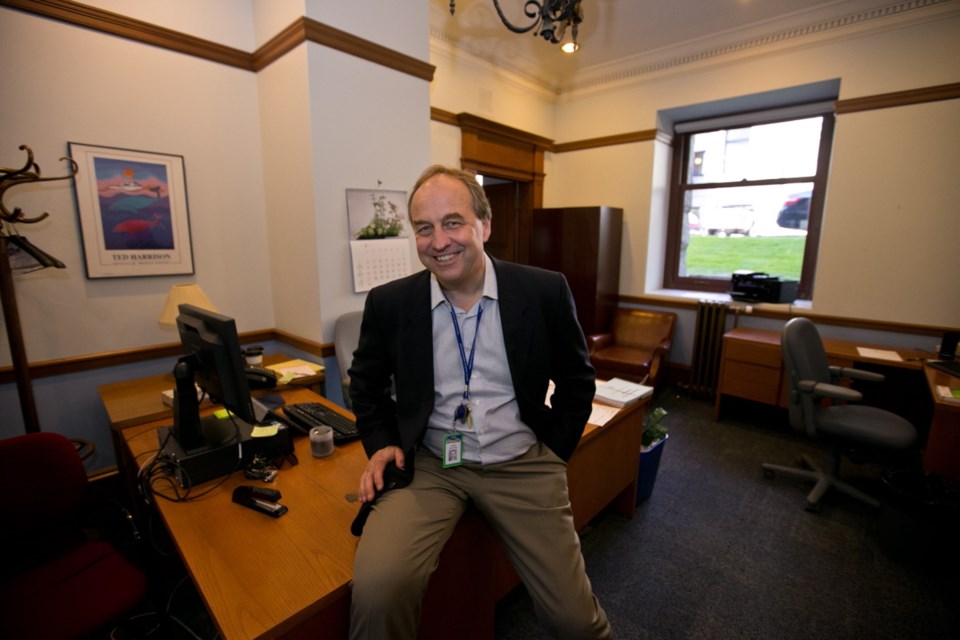VANCOUVER — The province’s bet on liquefied natural gas as the key to the B.C.’s financial future doesn’t make economic sense, Green party MLA Andrew Weaver told a sparse audience of municipal politicians at the Union of B.C. Municipalities convention Thursday.
“I think talk of B.C. becoming a major LNG exporter is nothing more than a pipe dream,” said Weaver, a climate-change expert and B.C.’s only Green MLA.
Weaver said there is no way the province can meet legislated greenhouse-gas emission targets if it continues to develop the LNG option.
“The numbers just don’t add up. The greenhouse-gas emissions associated with LNG development are simply too high to allow us to meet our legislated targets,” he said. “Canada has less than one per cent of the world’s proven natural gas reserves. Russia has 20 times as much natural gas as all of Canada combined, and they’ve recently signed long-term export agreements with China. Russia transports its gas to China by pipes. It doesn’t require the costly process of liquefying it and tanker traffic across the ocean.”
Weaver said Australia has similar-size shale gas reserves as Canada and is far more advanced in the development of its LNG industry.
“Yet several of their projects are being put on hold, citing concerns over costs,” he said.
The U.S., which has recently announced it will allow the export of natural gas, has more than twice the shale gas reserves as Canada, Weaver said.
“The U.S. already has the necessary infrastructure in place on their coastline to facilitate the relatively quick development of their LNG export industry and China could well be soon positioned to take advantage of its own natural gas reserves, which are three times the size of all of Canada’s — not just B.C.’s alone.”
Weaver suggested “investing in the economy of tomorrow instead of the economy of yesterday” by positioning the province as a leader in green technology, which he described as the sector responsible for the generation, transportation and end-use or renewable energy.
Weaver, who was scheduled to speak for five minutes just before a noon lunch break, lost much of his audience when the conference program ran over and many delegates left to eat.
Speaking to reporters, Weaver said he expected the Green party’s allotted time on the UBCM agenda would improve.
“The positioning [just before the lunch break] is a little unfortunate, but it reflects the reality that we are a small party of one seat. I think if you watch next year, we’ll be filling the room,” he said.
“We’re a growing party that operates with a vision, not just to say no, but to offer different solutions, and I think that will resonate with people.”
More than 1,600 mayors, councillors and regional district directors are at the convention, which closes today with an address by Premier Christy Clark.



